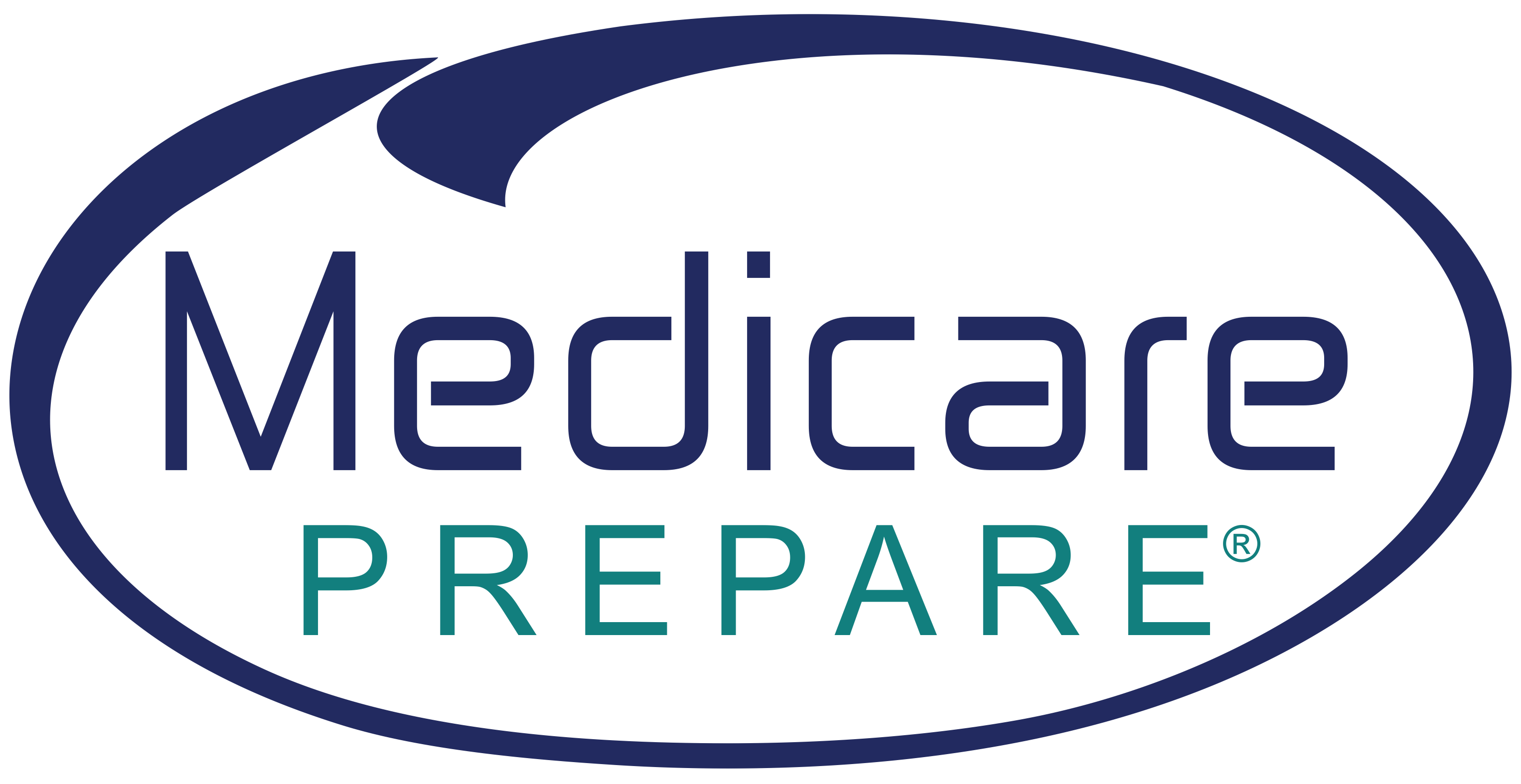How Medicare Works
Understanding Medicare doesn’t have to be overwhelming. Below, you’ll find the basics — explained
in plain language — so you can make confident choices
for your health coverage.
Medicare Basics: Parts A, B, C & D

Part A – Hospital Insurance
Covers inpatient care, skilled nursing facilities, hospice, and some home health services.
Most people don’t pay a premium for Part A.

Part B – Medical Insurance
Covers doctor visits, outpatient care, lab work, preventive services, and some home health care.
Part B has a monthly premium.

Part C – Medicare Advantage
All-in-one plans offered by private insurance companies. These often include Part A, B, and usually Part D (drug coverage), plus extras like dental, vision, and hearing.
Benefits and costs vary by ZIP code.

Part D – Prescription Drug Coverage
Standalone plans (for those with Original Medicare) or included in many Advantage plans.
Premiums and formularies vary by plan.
When to Enroll, And Why Timing Matters
Timing matters with Medicare. Here's when you can enroll:
Initial Enrollment Period (IEP):
✅ Starts 3 months before your 65th birthday and lasts for 7 months total
✅ This is the best time to sign up to avoid delays or penalties
Annual Enrollment Period (AEP):
✅ Runs from October 15 to December 7 each year
✅ You can switch Medicare Advantage or Part D plans during this time
Special Enrollment Period (SEP):
✅ Triggered by life events like moving, losing employer coverage, or qualifying for extra help
✅ You may be able to make changes outside of standard enrollment windows
Medicare Supplement vs. Medicare Advantage
| Feature | Medicare Supplement (Medigap) | Medicare Advantage (Part C) |
|---|---|---|
| Primary Purpose | Helps pay costs not covered by Original Medicare | Replaces Original Medicare with added benefits |
| Provider Network | Any doctor/hospital that accepts Medicare | Must use plan’s network (HMO/PPO) |
| Drug Coverage | Not included (buy separate Part D plan) | Usually included |
| Out-of-Pocket Costs | Lower and more predictable | Lower premiums, higher out-of-pocket costs |
| Monthly Premiums | Higher (plus Part B premium) | Often $0 (still pay Part B premium) |
| Referrals Needed? | No | Often yes (for HMOs) |
| Travel Coverage | Nationwide (good for travel) | Local networks only; emergency travel coverage |
| Plan Types | Standardized (Plan G, Plan N, etc.) | Varies by carrier and region |
| Enrollment Time | Best during Medigap Open Enrollment | Annual Enrollment or Open Enrollment Period |
| Added Benefits | None | May include dental, vision, hearing, etc. |
| Switching Plans | May require medical underwriting | Can switch annually during open enrollment |
Are You Turning 65?
Skip frustrating online searches and schedule a time to meet in person.
We also encourage annual reviews of your existing Medicare insurance coverage to determine if your
needs are still being effectively met.
Request Appointment
Frequently Asked Questions
What is Medicare, and who is eligible?
Medicare is a federal health insurance program for:
✅ People age 65 or older
✅ Some individuals under 65 with certain disabilities
You're typically eligible around your 65th birthday, even if you’re still working.
What does Medicare not pay for seniors?
There are some things Original Medicare won't cover. Generally, most vision, dental and hearing services are not covered by Medicare Parts A and B. Other services not covered by Medicare Parts A and B include: Routine physical exams.
When should I enroll in Medicare?
Your Initial Enrollment Period (IEP) is a 7-month window:
✅ 3 months before your 65th birthday
✅ The month of your birthday
✅ 3 months after your birthday
It’s best to review your options early to avoid delays or penalties.
What’s the difference between Parts A, B, C, and D?
Part A – Hospital coverage 🏥
Part B – Doctor visits, outpatient care 👩⚕️
Part C – Medicare Advantage (bundled private plans) 📦
Part D – Prescription drug coverage 💊
Do I have to pay for Medicare?
Most people don’t pay a premium for Part A
Part B has a monthly premium
Drug coverage (Part D) and supplement plans may have additional costs
What is Medicare Advantage?
Medicare Advantage (Part C) plans are offered by private insurance companies. They include:
✅ Hospital + doctor coverage
✅ Many plans include drug, dental, and vision
Plans vary by zip code. Not all benefits apply to every person.
What is a Medicare Supplement (Medigap)?
Medicare Supplement plans help cover out-of-pocket costs like deductibles and co-pays.
They work with Original Medicare (Parts A & B) and can help you manage expenses more predictably.
What if I’m still working at 65?
If you're covered by an employer plan (or your spouse's), you might be able to delay Medicare Part B without penalty — depending on the size of the employer. Ask before you delay.
Will Medicare cover my prescriptions?
Only if you enroll in:
✅ A Part D drug plan, or
✅ A Medicare Advantage plan that includes drug coverage
To avoid late enrollment penalties, join when you’re first eligible.
How do I know what plan is right for me?
✅ The right fit depends on your:
✅ Medications 💊
✅ Doctors 🩺
✅ Travel habits ✈️
✅ Budget 💵

